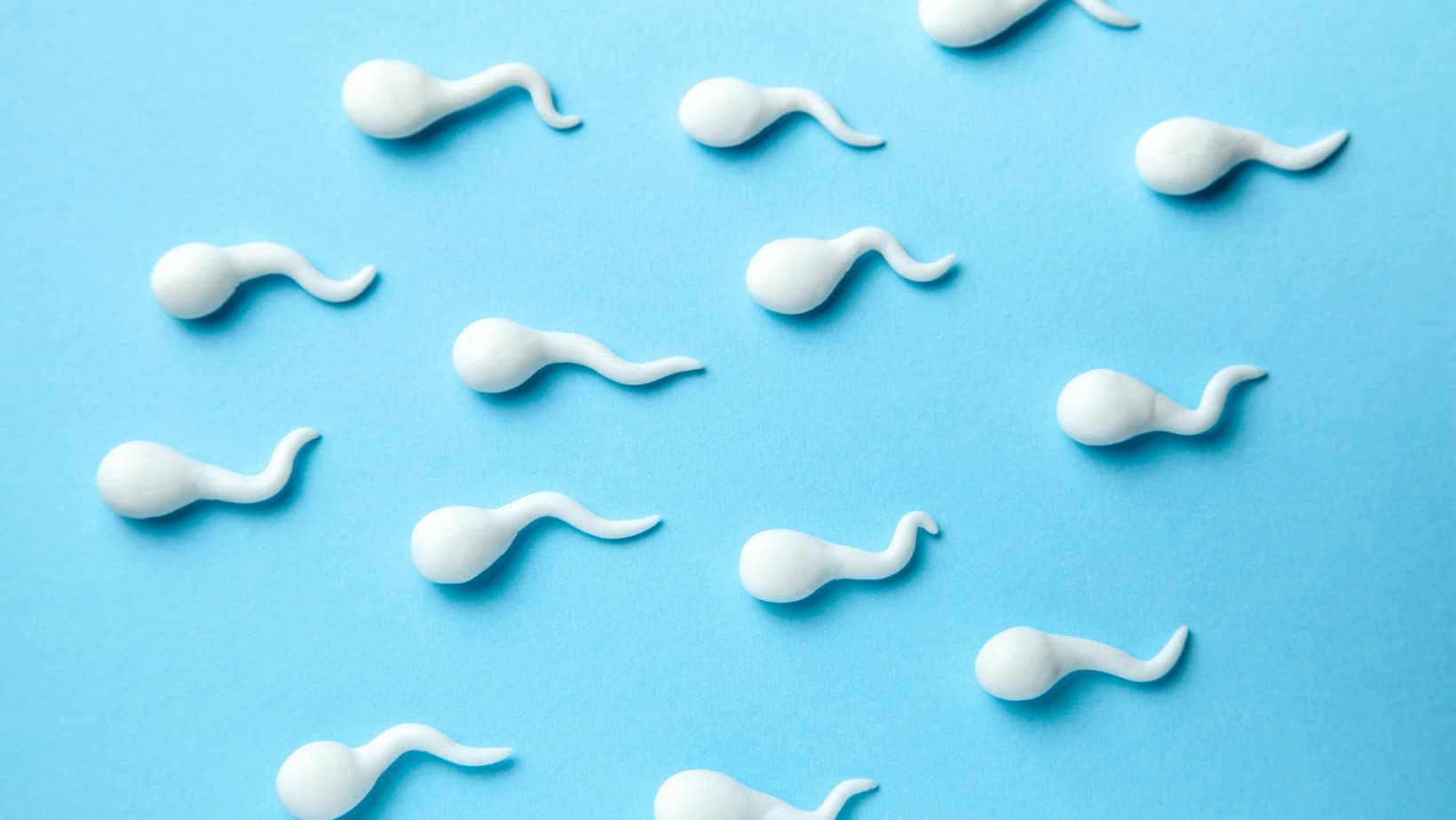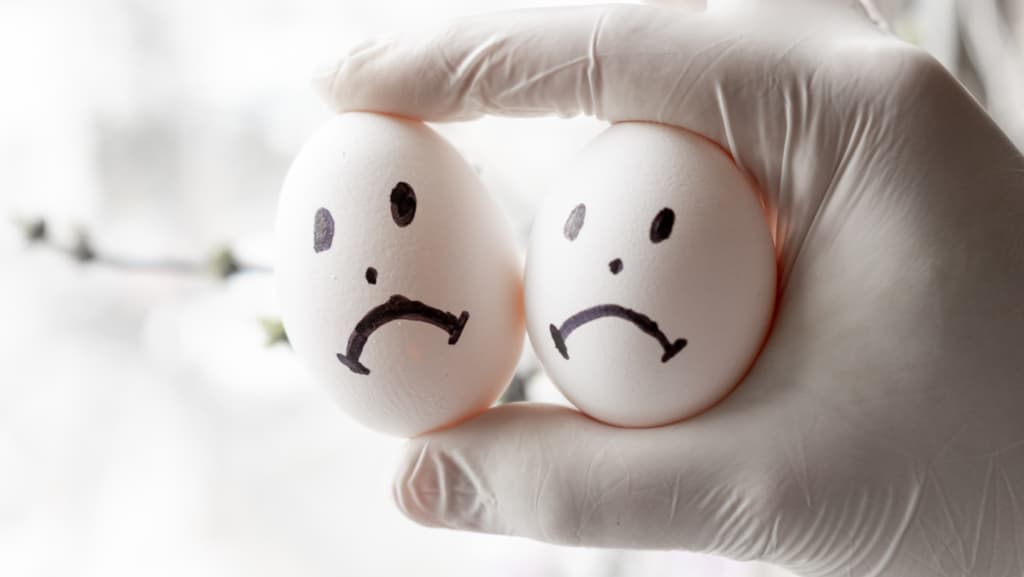Despite the widespread belief that infertility primarily affects women, male factor infertility plays a significant role, accounting for about 40-50% of all cases. It is crucial to understand this important statistic, especially considering that approximately 8-12% of couples worldwide struggle with infertility. When a couple faces difficulties conceiving, the focus is often directed toward women, but the reality is that male infertility rates are nearly equal to those of women.
This guide aims to provide comprehensive knowledge about male infertility, including its contributing factors, diagnostic techniques like semen analysis, and treatment options such as intracytoplasmic sperm injection (ICSI) and in vitro fertilization (IVF). By exploring these topics, we hope to empower individuals and couples with the necessary information to better understand male infertility and its potential treatments, ultimately leading to improved reproductive health and the fulfillment of their desire to conceive.
About Male Infertility
By its medical definition, males may be diagnosed with infertility if they cannot conceive with their fertile female partner after a year of trying. It’s a common issue that stems from different factors. While some men show obvious signs, others don’t experience any symptoms at all. By understanding male infertility deeper, couples can take proactive steps in approaching parenthood. Types of Male Infertility
Here are four common types of male infertility.
Hypogonadotropic hypogonadism
This condition is characterized by low levels of reproductive hormones, such as testosterone, due to a malfunction in the hypothalamus or pituitary gland. It can lead to impaired sperm production and fertility.
Erectile dysfunction (ED)
Erectile dysfunction happens when you’re unable to achieve or maintain an erection during sex. It affects fertility when males find it difficult to ejaculate. Physical and psychological issues can cause ED, sometimes called “impotence.”
Coital disorders
Coital disorders encompass conditions that affect the process of ejaculation, including:
- Retrograde ejaculation (where semen is redirected to the bladder instead of exiting through the penis)
- Anejaculation (inability to ejaculate)
- Other ejaculatory disorders that can contribute to male infertility.
Sperm disorders
Genetic factors, hormonal imbalances, lifestyle choices, and certain medical conditions can influence these disorders. They include:
- Oligospermia: low sperm count
- Asthenospermia: poor sperm motility
- Teratospermia: abnormal sperm morphology
- Azoospermia: absent sperm
Causes of Male Infertility

Male infertility can stem from various causes, including sperm disorders, hormonal imbalances, ejaculation disorders, and other factors affecting fertility.
Sperm disorders
Sperm disorders encompass a range of abnormalities that can impact male fertility. These disorders may include:
- Low sperm count (oligospermia): A low sperm count reduces the chances of fertilizing an egg, making conception more difficult.
- Poor sperm motility (asthenospermia): When sperm have limited ability to swim or move effectively, they may struggle to reach and penetrate the egg.
- Abnormal sperm shape (teratospermia): Sperm with abnormal morphology may have difficulty fertilizing an egg due to structural abnormalities.
- Blockage or absence of the vas deferens: The vas deferens is the duct that carries sperm from the testicles to the urethra. Any blockage can hinder the release of sperm during ejaculation.
Hypogonadism
Hypogonadism refers to a condition in which the male reproductive system produces inadequate levels of testosterone. Testosterone is crucial for sperm production and overall reproductive function. Hypogonadism can be congenital or acquired, and it can significantly affect fertility.
Ejaculation disorders
Ejaculation disorders involve difficulties in the ejaculation process, which can impact fertility. Some common ejaculation disorders include:
- Retrograde ejaculation: In this condition, semen is directed back into the bladder instead of expelled through the penis during ejaculation. This reduces the amount of sperm available for fertilization.
- Premature ejaculation: Premature ejaculation occurs when a man ejaculates before or shortly after penetration, reducing the chances of sperm reaching the egg.
- Anejaculation: Anejaculation is the inability to ejaculate semen. This can occur due to certain medical conditions, medications, or nerve damage.
Other things that affect fertility
Besides sperm disorders, hormonal imbalances, and ejaculation disorders, several other factors can influence male fertility, including:
- Age: Advanced age can lead to declining sperm quality and quantity.
- Lifestyle factors: Unhealthy habits such as smoking, excessive alcohol consumption, drug use, obesity, and poor nutrition can negatively impact fertility.
- Environmental factors: Exposure to certain toxins, radiation, chemicals, or high temperatures can impair sperm production and function.
- Chronic health conditions: Conditions like diabetes, kidney disease, cancer, and sexually transmitted infections (STIs) can affect male fertility.
- Medications: Some medications, such as certain antibiotics, anti-inflammatory drugs, and chemotherapy agents, can interfere with sperm production or function.
Understanding the potential causes of male infertility is crucial for identifying underlying issues and seeking appropriate treatment. Consulting with a healthcare professional specializing in fertility can help diagnose the specific cause and determine the most suitable course of action.
Symptoms of Male Infertility
Male infertility can be challenging to identify as it often does not present with noticeable symptoms.
However, certain signs may indicate potential fertility issues. We recommend seeking appropriate medical evaluation and intervention if you experience any of these obvious symptoms.
Problems with sexual function
These issues may indicate underlying hormonal imbalances, nerve damage, or other factors impacting fertility.
- Difficulties with ejaculation
- Reduced sexual desire
- Erectile dysfunction
- Pain, swelling, or lump in the testicle area
Unexplained pain, swelling, or a lump in the testicle area may indicate testicular abnormalities or conditions like testicular cancer. These abnormalities can potentially affect sperm production and fertility.
Recurrent respiratory infections
Frequent respiratory issues, such as sinusitis or bronchitis, may be associated with underlying genetic conditions or abnormalities that impact fertility. These conditions can affect the normal functioning of the reproductive system.
Inability to smell
An inability to smell, known as anosmia, may be a symptom of Kallmann syndrome.
Kallmann syndrome is a genetic disorder associated with infertility that affects the production or secretion of reproductive hormones, including those responsible for sperm production.
Abnormal breast growth (Gynecomastia)
Gynecomastia, the abnormal growth of breast tissue in males, can be a symptom of hormonal imbalances. Imbalances in testosterone and estrogen levels can disrupt normal reproductive function and potentially contribute to male infertility.
Chromosomal or hormonal abnormalities
- Physical symptoms:
- Decreased facial or body hair growth
- Abnormal body proportions
- Developmental delays
- Non-physical symptoms
- Low sperm count
A lower-than-normal sperm count, characterized by fewer than 15 million sperm per milliliter of semen or a total sperm count of less than 39 million per ejaculate, can indicate male infertility. Aside from hormonal imbalance, other factors that lead to low sperm count are genetic conditions and lifestyle choices.
Recognizing these symptoms can serve as a valuable prompt to seek medical evaluation and assistance from a healthcare professional specializing in reproductive health. Identifying and addressing the underlying causes of male infertility can help individuals and couples make informed decisions regarding fertility treatments and family planning.
Diagnosis of male infertility

Diagnosing male infertility involves a comprehensive evaluation that includes medical history assessment, physical examinations, and specialized tests. Healthcare professionals can develop targeted treatment plans for you by identifying the specific factors contributing to infertility.
Here are three ways that help diagnose male infertility:
Common questions
During the diagnostic process, healthcare professionals will ask common questions that will help gather information for further evaluation. These questions include:
- Medical history
- Sexual function
- Lifestyle factors
- Any previous fertility concerns
Initial tests
The initial tests to diagnose male infertility may include a semen analysis, which assesses sperm count, motility, morphology, and other parameters.
Healthcare professionals may also measure the levels of the following hormones to evaluate hormonal imbalances:
- Testosterone
- Follicle-stimulating hormone (FSH)
- Luteinising hormone (LH)
- Prolactin
Further tests
Further tests may be recommended depending on the initial test results and individual circumstances. These tests may include:
- Genetic testing helps identify any chromosomal abnormalities or genetic conditions impacting fertility.
- Imaging studies: Scrotal or transrectal ultrasound can provide detailed images of the reproductive organs.
- Testicular biopsy: This evaluates sperm production and identifies obstructions.
- Specialized tests: DNA fragmentation tests of immune system evaluations may be used to look further into your condition.
By progressing through these stages of diagnosis, healthcare professionals can gain a comprehensive understanding of the underlying factors contributing to male infertility.
This information guides the development of an appropriate treatment plan to address the specific causes and improve your fertility potential.
Treatment for Male Infertility

Finding the proper treatment for male infertility depends on the underlying causes identified through the diagnostic process.
Here are standard treatment plans to overcome fertility challenges and increase the chances of conception.
Surgery
Surgery may be performed to correct anatomical abnormalities or blockages that affect sperm production, transport, or ejaculation.
For example, surgical procedures can address conditions like varicoceles (enlarged veins in the scrotum), obstructed vas deferens, or repair of reproductive tract abnormalities.
Treating infections
Infections of the reproductive system, such as sexually transmitted infections (STIs) or urinary tract infections (UTIs), can impair fertility. Treating them with appropriate medications helps eliminate the infection and minimize its impact on reproductive health.
Treatments for sexual intercourse problems
Various treatments for sexual intercourse problems, such as erectile dysfunction or premature ejaculation, include:
- Medications
- Counseling
- Behavioral techniques
- Vacuum erection devices
Hormone treatments and medications
Hormone treatments may be prescribed to correct hormonal deficiencies or imbalances, including hormone replacement therapy or medications such as clomiphene citrate. These treatments aim to optimize hormone levels and enhance sperm production.
Assisted reproductive technology (ART)
Assisted reproductive technology refers to advanced medical procedures that help overcome fertility challenges. Common ART techniques used for male infertility include:
- Intrauterine insemination (IUI): Medical professionals will collect, process, and insert the sperm directly into the uterus during the woman’s fertile window to increase the chances of fertilization.
- In vitro fertilization (IVF): In this process, professionals will retrieve the eggs from the woman’s ovaries and fertilize them with sperm in a laboratory setting. Then, they will inject the resulting embryos into the woman’s uterus.
- Intracytoplasmic Sperm Injection (ICSI): Professionals inject a single sperm directly into an egg to facilitate fertilization. This technique is particularly useful when there are severe sperm-related issues.
ART procedures offer assisted means of achieving pregnancy when natural conception is challenging. They provide options for couples to overcome fertility obstacles and realize their goal of starting a family.
Timing
Timing is crucial in treating sexual intercourse problems related to male reproductive health. It involves determining the best time for engaging in sexual activity to increase the chances of getting pregnant. This is especially important for couples dealing with hormone imbalances, undergoing reproductive medicine treatments, male infertility treatments like sperm retrieval, or experiencing fertility problems. By having unprotected sex during the most fertile period, couples can improve their chances of overcoming fertility issues and conceiving a child.
Lifestyle and diet
Lifestyle and diet can play a significant role in treating sexual intercourse problems and addressing infertility issues in men. By making positive changes to your lifestyle and adopting a healthy diet, you can reduce risk factors that negatively impact fertility. This includes avoiding smoking and excessive alcohol consumption, maintaining a healthy weight, and eating a nutritious diet rich in fruits, vegetables, whole grains, and lean proteins. Taking care of your overall health through lifestyle and dietary improvements can contribute to optimal hormone levels, improve sperm count and volume, and enhance the ability to transport sperm for fertilization, increasing the chances of successfully conceiving your partner’s eggs in her fallopian tubes.
Heat Control
Heat control is an important aspect of treating sexual intercourse problems and addressing infertility issues in men. Excessive heat around the testicles can negatively affect sperm production and reduce sperm count and volume, leading to infertility. By avoiding prolonged exposure to hot environments, such as hot baths, saunas, or tight-fitting underwear, and opting for loose, breathable clothing, you can help maintain a cooler temperature around the testicles, promoting optimal sperm health and increasing the chances of overcoming infertility issues.
Medicines
Medicines are crucial in treating sexual intercourse problems, including ejaculation problems, and addressing various reproductive issues. They can help improve ejaculatory control, enhance fertility, and address specific underlying conditions. Depending on the cause of the problem, medications may be prescribed to regulate hormone levels, treat genetic diseases that affect fertility or manage conditions like testicular cancer. Consulting with a healthcare professional and undergoing necessary blood tests can help determine the appropriate medications and reproductive techniques to improve sexual health and increase the chances of successful conception.
Avoiding work hazards
Avoiding work hazards is important when addressing sexual intercourse problems and aiming to increase the chances of getting your partner pregnant. Certain work environments can expose men to hazards that can negatively impact the quality and health of their sperm. For example, exposure to chemicals, radiation, or high temperatures can increase the production of reactive oxygen species and contribute to sperm damage. Taking proactive measures to minimize exposure to such hazards, along with regular check-ups and blood tests, can help maintain optimal sperm health and increase the likelihood of successful conception.
Reduce stress
Reducing stress is important in treating sexual intercourse problems and addressing male fertility issues. Chronic stress can adversely affect a man’s sperm health and quality. Individuals can improve their overall well-being and potentially enhance fertility by implementing stress-reducing techniques such as exercise, meditation, or engaging in hobbies. Taking steps to manage stress can help lower high blood pressure, promote hormonal balance, and increase the chances of addressing male infertility issues effectively.
Living with male infertility

The inability to conceive naturally can be a complex and emotional experience for individuals and couples. Receiving a diagnosis can evoke a range of emotions, such as:
- Frustration
- Sadness
- Guilt
- Sense of loss
- Feelings of inadequacy
- A profound sense of disappointment
All these emotions can affect a person’s self-esteem and overall well-being.
For men, male infertility can challenge their sense of masculinity and identity. It may also strain relationships with their partners, causing stress and potentially impacting intimacy and communication.
Couples dealing with male infertility often face significant emotional and psychological burdens.
The pressure to conceive can create tension and strain within the relationship, and the constant cycle of hope, disappointment, and medical interventions can take a toll on their mental and emotional health.
Also, living with male infertility means navigating medical appointments, fertility treatments, and decision-making processes, which may require making difficult choices, such as pursuing assisted reproductive technologies or considering alternative paths to parenthood.
It’s important to remember that living with male infertility is not an isolated experience. Many couples facing similar challenges have found support networks and resources that provide understanding, empathy, and guidance.
Seeking support from loved ones, joining support groups, or engaging in counseling or therapy can help individuals and couples cope with the emotional impact of male infertility and foster resilience.
Despite the challenges, living with male infertility can also present opportunities for personal growth, strength, and connection within relationships. It can foster resilience, empathy, and a deeper appreciation for the journey to parenthood.























































